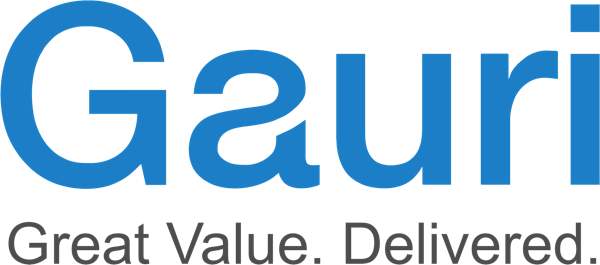Integration has become a key in today’s disruptive era. A lot of marketing content is revolving around integration platforms, especially iPaaS (Integration Platform-as-Service); a new methodology to overcome the problems of integration with applications and processes in a secure, safe and cost-effective manner.
Achieving the required level of integration with best of breed solutions still poses a few challenges for businesses. This blog tries to evaluate available features and functions of some market-leading providers of iPaaS.
To begin with, we chose Informatica Cloud (IC), the leader in implementing iPaaS solutions (as per the Gartner’s report). This tool also has its strong base in the on-premise ETL + Data Quality solutions. Most cloud solutions are maturing day by day and so far the Informatica cloud has been leading the pack.
In a nutshell:
- Informatica Cloud is an on-demand cloud integration subscription service that has combined data integration and data management capabilities.
- It enables you to integrate with cloud-to-cloud, cloud-to-on premise applications, databases, IOTs, social networks in addition to big data sources.
- It has self-contained development, administration and monitoring through an accessible on-demand web interface.
- A great feature is the provision of pre-built integration packages for different application integration scenarios. Resulting in simpler development cycles with shorter time durations.
- Informatica Cloud can be run on-premise or via the Informatica cloud server (ICS) using Secure agent.
- You can gain several benefits for bulk and real-time integration; leveraging the single and unified platform.
- Also, cloud data can be backed up, data archived and offline reporting delivered.
A high-level view is explained here:

This diagram illustrates the holistic view of the implementation scenario. The security of the data is handled by the Secure Agent which is a lightweight program and a run time environment for the Informatica Cloud. You can install it in your local system to perform data processing; benefiting from 128 bit secure sockets layer (SSL) technology to protect your data. Informatica Cloud also comes with added cloud tasks to integrate your data with cloud and on-premise scenarios.
Data Synchronisation
Data Synchronisation is the process of establishing consistency in data from a source to target data storage & vice versa + subsequent continuous updates or insert of the data over time. IC allows us to achieve that in real-time. For example, you have account data, contact data and other customer information in Salesforce and in the ERP system – these can be synchronised in real-time using the Data Synchronisation task.
Data Replication
Data Replication allows you to backup, archive, as well as perform offline reporting; consolidating and manage data in a secure way. For example, your data is available on the Salesforce cloud and for security purposes you wish to replicate the data into a local system. With the Informatica replication task, you can achieve this with minimal effort.
Contact Validation Service
This is a very useful feature which helps you to validate and correct postal address data, and cleanse data as well.
- Address validation: In the back end, the contact validation service processes the provided address and verifies it against the address database. It also has the capability to correct incomplete addresses.
- Geo code info: This service also has the ability to add Geo code information to the address (Geo code is basically the longitude, latitude for the address location).
- Data cleanse: It can also validate the email address and check the phone numbers against the do not call registry.
Note: Informatica Cloud can validate and correct the address for more than 240 countries and territories
Mapping configuration Task (MCT)
This task allows you to process data based on the dataflow logic defined in a mapping/Integration template and allows you to parameterise source or target connections.
In short, it allows you to schedule the task and these can also be invoked through REST APIs. You can also create several mapping configuration tasks on single mapping and run them for a different set of values. This task could be created with any source, target or filter condition based on the input.
Mapping
This task can be used for complex logic implementations that can’t be achieved via Data Synchronisation and Data Replication tasks. You can use the mapping task to define data flow logic, join multiple source systems, implement the warehouse system or prepare data for offline ad-hoc reports.
Service and Processes
Informatica Cloud helps to build real-time integrations that seamlessly unify cloud data, services, and processes across any boundary. Visual design tools allow business process analysts and integration developers to easily create process applications without the need for specialised coding skills. The multi-tenant cloud process provides the maximum performance at runtime, without the installation and administration headaches of traditional software.
Data Assessment
This task allows you to measure and monitor the quality of a data set (like Salesforce objects Accounts, Contacts, Leads and Opportunities). You can also use data assessment tasks to measure field completeness, field conformances, record duplication and address validity. Additionally, you can configure filters on the data and thresholds, which determine unacceptable, acceptable, and good data.
Data masking
This task can be used to replace source data in sensitive columns with realistic test data for non-production environment. Data masking rules define the logic to replace the sensitive data. Assign the data masking rules to the columns you need to mask.
Power centre
You can also import the already built power centre workflow and run it as an Informatica Cloud power centre task.
Connectors
Along with the added benefits, Informatica cloud also provides a bulk of connectors to integrate the systems. These are the pre-built integration solutions for connecting the cloud applications, on-premise systems, databases and devices.
For example: Salesforce, SAP, RDBMS (such as SQL Server, Oracle, MySQL etc.) and File Formats.
Source: Informatica cloud https://app.informaticaondemand.com/ma/
Informatica Cloud has created a whole different world of data and process management across cloud and on-premise systems. It is also providing the bundles and application integration kit to speed up the business – and there is more to come.

